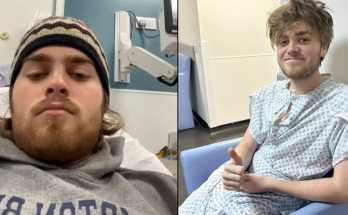Cystic Acne Treatment
Cystic acne is a challenging skin condition affecting many individuals in Singapore. This comprehensive guide aims to provide valuable insights and treatment options available in the region.


WhatsApp Us Now
What is Cystic Acne?
Cystic acne is a severe form of acne characterized by deep, inflamed, and painful cysts or nodules on the skin. It appears more serious than typical pimples and can result in significant swelling and scarring. Unlike other forms of acne, cystic acne stems from infections trapped beneath the skin, making it more resilient to traditional and over-the-counter treatments1.
What Causes Cystic Acne?
Cystic acne is a complex condition influenced by various factors including hormones, genetics, diet, environment, and lifestyle. Understanding these contributing elements can help in managing your condition.
Hormonal Fluctuations
A primary cause of cystic acne, particularly in women, is hormonal changes. The fluctuations that occur during menstrual cycles can lead to the overproduction of oil in the sebaceous glands. This excess oil, or sebum, clogs pores and creates the perfect environment for acne breakouts. Additionally, high levels of androgens and testosterone can stimulate the sebaceous glands even further, exacerbating the production of sebum. This overactivity can result in the pores becoming clogged, leading to severe acne formations.
Genetic Predisposition
Genetics play a significant role in the likelihood of developing cystic acne. If you have a family history of severe acne, the chances are higher that you might experience it too. This genetic tendency often leads to the overproduction of sebum, resulting in oilier skin and an increased likelihood of acne breakouts.
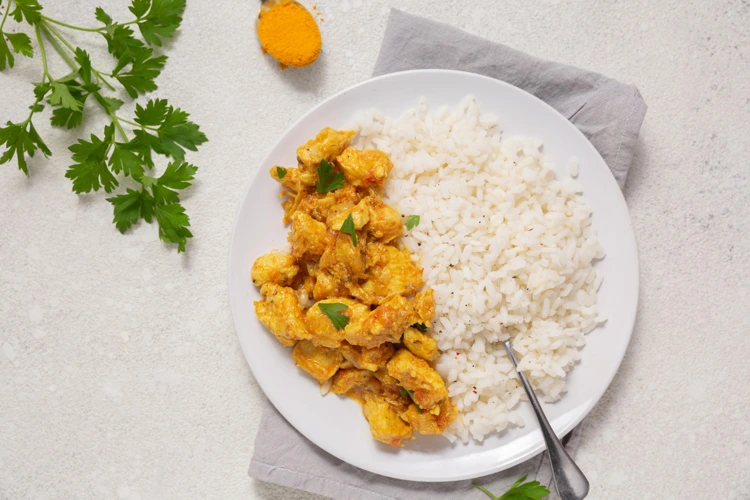
Dietary Factors
Diet can also influence the severity and frequency of cystic acne. Certain foods are known to trigger skin inflammation and accelerate cyst formation. High-glycemic (GI) foods, which cause a rapid increase in blood sugar, have been linked to the development of acne. These foods can exacerbate inflammation and contribute to the severity of acne symptoms.
High GI foods include2:
- Sugar and Sugary Foods
- Sugary Soft Drinks
- White Bread
- White Rice
- Potatoes
Environmental Influences
Environmental factors3, especially in urban settings, can exacerbate cystic acne. Pollution and humidity can clog pores with impurities and excess moisture, creating an ideal breeding ground for acne-causing bacteria. The skin’s exposure to these environmental stressors can increase the severity of acne and also lead to other skin complications.
Lifestyle Factors
Lastly, lifestyle choices can significantly impact the development and persistence of cystic acne. Stress, poor sleep, and inadequate skincare routines can all contribute to the worsening of acne. High stress levels, for instance, can lead to hormonal imbalances, further aggravating skin conditions. A balanced lifestyle that includes stress management, regular sleep patterns, and appropriate skincare routines can help mitigate some of these effects.
What Are the Common Areas for Cystic Acne?
Cystic acne typically occurs on the face, chest, back, upper arms, and shoulders. These areas have a higher concentration of sebaceous glands, which produce oil. When these glands become overactive and clogged with oil and dead skin cells, cystic acne can emerge.
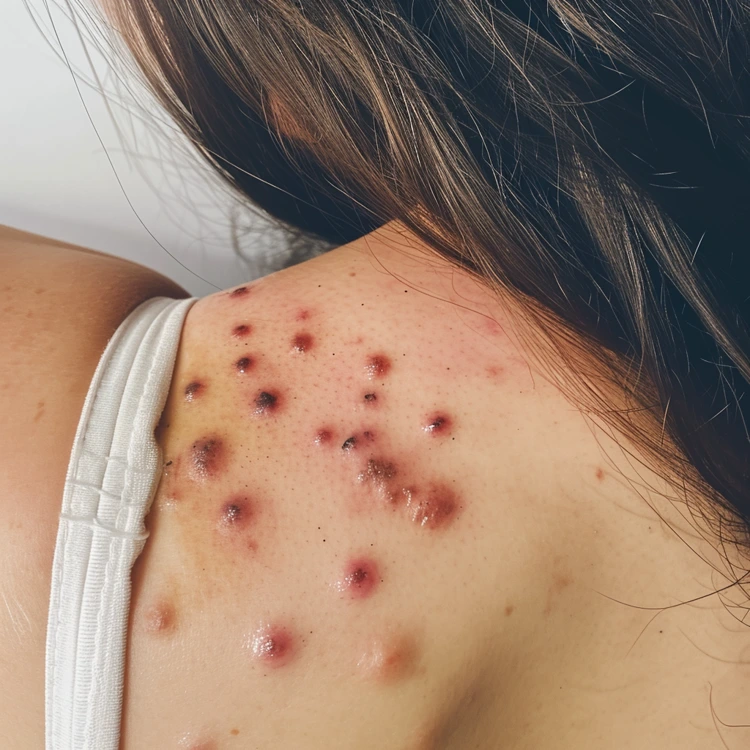
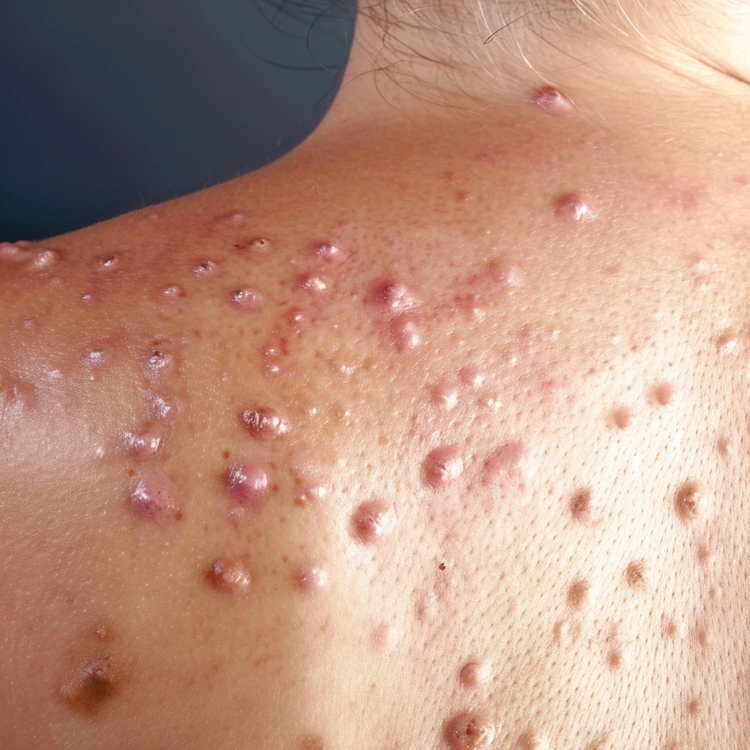
How to Treat Cystic Acne?
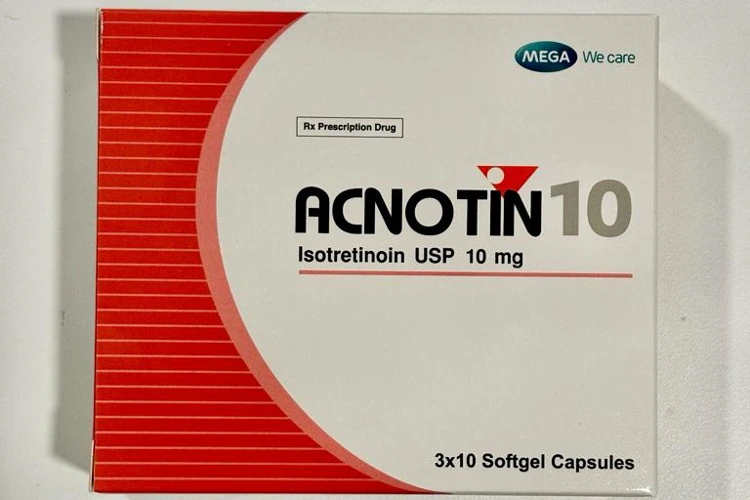
Oral Medication
Oral medications are often prescribed for severe cystic acne. These include antibiotics to reduce inflammation and bacteria, hormonal treatments like birth control pills for hormonal regulation, and topical medications such as retinoids, which reduces oil gland size and sebum production. It’s crucial to discuss potential side effects and medical history with a doctor before starting any oral medication.
Anti-Acne Injections
Anti-acne injections, also known as intralesional corticosteroid injections, are used to treat large, painful acne cysts. The injection reduces inflammation and speeds up healing, often showing improvement within a few days. This treatment is usually a last resort for acne that doesn’t respond to other treatments.
Drainage of Acne Cyst
In some cases, a doctor may perform a drainage procedure. This involves carefully extracting the contents of the cyst to reduce pain and accelerate healing. This procedure should only be performed by a qualified medical professional to prevent infection and scarring.
Cystic Acne Treatment: Before and After Photos
Owing to the regulations of The Ministry of Health (MOH), we are unable to publish before and after photos on our website. However, you may view these photos during your consultation with our doctor to understand more about the treatment you seek.
Cystic acne, while challenging, is treatable in Singapore with the right approach and medical interventions. It’s essential to consult with a doctor to determine the most effective treatment plan based on individual skin types and the severity of the condition. While the journey to clearer skin can vary from person to person, with consistent and proper treatment, significant improvements are often achievable.
How to Clear Cystic Acne
For acne that is cystic in nature, booking an appointment with a board-certified dermatologist as soon as possible is imperative. Do not pick at cysts! Your doctor can prescribe an appropriate treatment plan which may consist of antibiotics, Isotretinoin (Accutane), Spironolactone, or steroid shots. Over-the-counter topicals alone cannot fight cystic acne.
I always tell my patients that while their acne will eventually go away, scarring will last a lifetime. Starting acne treatment as soon as possible is paramount to prevent scarring. After following a dermatologist’s treatment plan, be sure to incorporate acne-fighting skincare into your regimen including a cleanser with benzoyl peroxide and an oil-free moisturizer to maintain a healthy skin barrier. Acne-prone skin needs hydration too!
This below video just for entertainment only

